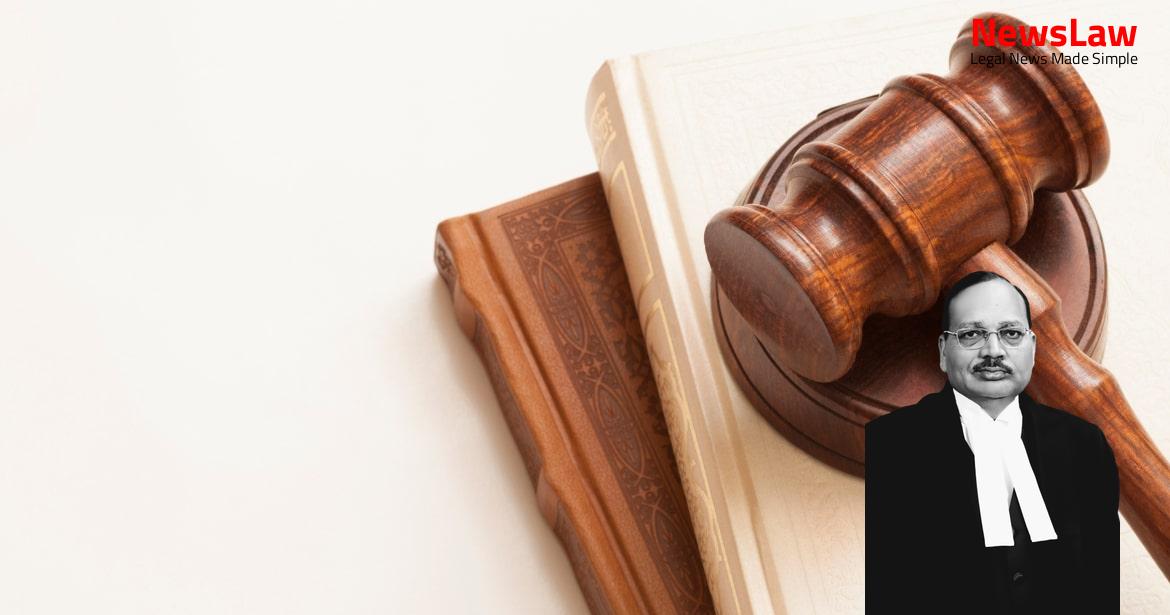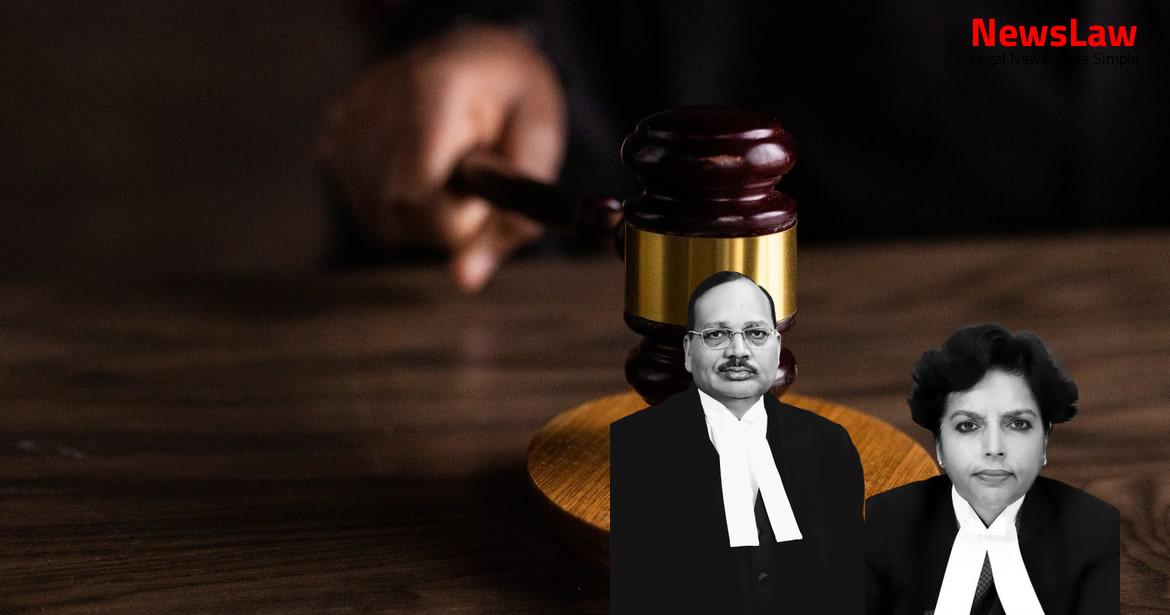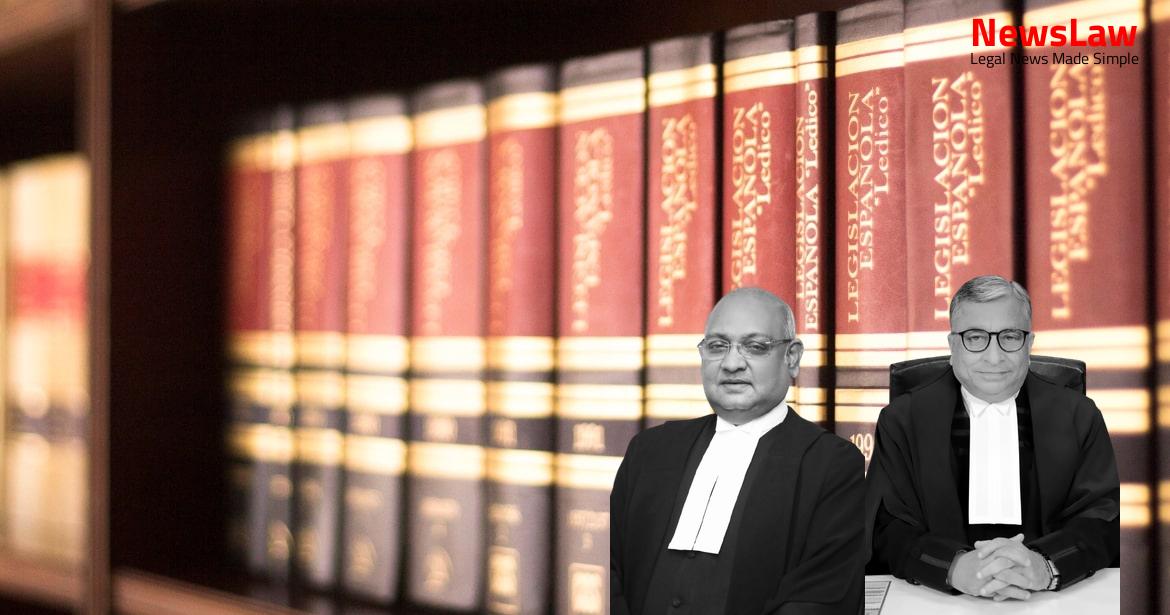Delve into the intricate legal analysis conducted by the court regarding the recent bail cancellation in a case involving the NDPS Act. The court’s detailed examination of evidence and precedents sheds light on the complexities surrounding the case. Stay tuned to understand the nuanced legal perspective on the matter.
Facts
- Bharat Chaudhary (A-4) challenged the reversal of his bail order by the High Court of Madras.
- The prosecution’s case was based on the seizure of contraband following information from the Directorate of Revenue Intelligence.
- The bail granted to A-4 was canceled by the High Court stating that some of the seized tablets contained narcotic substances.
- A confessional statement recorded under Section 67 of the NDPS Act was held inadmissible as per the recent verdict in Tofan Singh v. State of Madras.
- A-4 was granted bail initially but was later arrested for contravening NDPS Act provisions.
- The reasons given by the Special Judge for granting bail to A-4 included lack of possession of psychotropic substances, absence of contraband during search, and no established link with the other accused.
- Test reports were still awaited to determine if the seized tablets qualified as narcotic or psychotropic substances under the NDPS Act.
- Initial test reports indicated that the tablets were sexual enhancement drugs and not covered under NDPS Act.
- Further test reports were awaited to confirm the nature of the seized tablets.
- DRI conducted an investigation and summoned M.V. Srinivasan, Raja Chandrasekharan, and M. Ashok Kumar.
- Statements were recorded, and the three individuals were booked for offences under the NDPS Act.
- They were arrested on 18 October 2019.
- Statements revealed collusion with suppliers in Nagpur and Rajasthan to procure tablets containing psychotropic substances for export to the USA under the guise of herbal tablets.
- Search conducted at Bharat Chaudhary’s residence in Jaipur on 16 March 2020 resulted in the seizure of about 1,37,665 tablets weighing 90kgs.
- Tablets were seized from various locations in Chennai, including courier offices and residences.
Also Read: Time as Essence of Contract in Sale Agreement: Legal Analysis
Arguments
- The High Court criticized the trial Court for not considering available test reports before pronouncing the order regarding bail for A-4.
- Bharat Chaudhary’s lawyer argued against the cancellation of bail by the High Court, stating that the grounds were insufficient.
- A-4’s arrest was based on information from A-1 to A-3 implicating him, not on his own statement.
- Absence of evidence linking A-1, A-3, and A-4 should not lead to relief for A-4.
- The Tofan Singh case ruling does not prevent the Prosecuting Agency from recording co-accused statements to catch other offenders.
- The Special Judge was criticized for conducting a broad inquiry to grant bail to A-4.
- The respondent argued that the nexus between A-4 and A-1 to A-3 is established through statements recorded under Section 67 of the NDPS Act and documents like Whatsapp chats and bank transactions between A-1 and A-4.
- A-4 was implicated based on the confession of Raja Chandrasekaran (A-1) under Section 67 of the NDPS Act, despite recent precedents questioning the admissibility of confessional statements.
- The respondent pointed out that no tablets were found in the possession of A-4 and that the seized pills were mainly sex enhancement drugs, not contraband.
- It was argued that commercial quantity of the psychotropic substance was not proved, and the Ayurvedic/herbal medicines seized were for sex enhancement, falling outside the NDPS Act.
- The respondent raised concerns about the seizure procedure not being followed as per the NDPS Act, casting doubts on the integrity of the seizure.
- The respondent also highlighted that the information received was about the alleged export from a different premises, not directly linking to A-1.
Also Read: Retirement Age of PTI/Sports Officer in University
Analysis
- Tablets were not seized by the prosecution during the search
- Quantitative analysis of the samples is not clear
- Tablets seized contain herbs/medicines for male potency, not covered under NDPS Act
- Twin tests under Section 37 of NDPS Act for commercial quantity not satisfied
- Impugned order cancelling bail for A-4 not sustainable
- Test reports from December 2019 mention lack of facilities for quantitative analysis
- In the absence of any psychotropic substance found in the possession of A-4, reliance on statements made by A-1 to A-3 under Section 67 of the NDPS Act is considered weak.
- The order dated 15 July, 2021 is quashed and set aside, restoring the order dated 2 November, 2020.
- Printouts of Whatsapp messages from A-4’s seized devices are not enough to establish a live link between A-4 and A-1 to A-3, especially without pending scientific reports on the devices.
Decision
- Raja Chandrasekharan is to be released on bail as the charge sheet has been filed and he has been in custody for over two years.
- The release on bail is subject to the satisfaction of the trial Court.
- The prima facie observations made are limited to the consideration of the bail relief requested and not a reflection on the merits of the pending trial case (CC No.0000037/2020).
Case Title: BHARAT CHAUDHARY Vs. UNION OF INDIA (2021 INSC 877)
Case Number: SLP(Crl) No.-005703 / 2021



